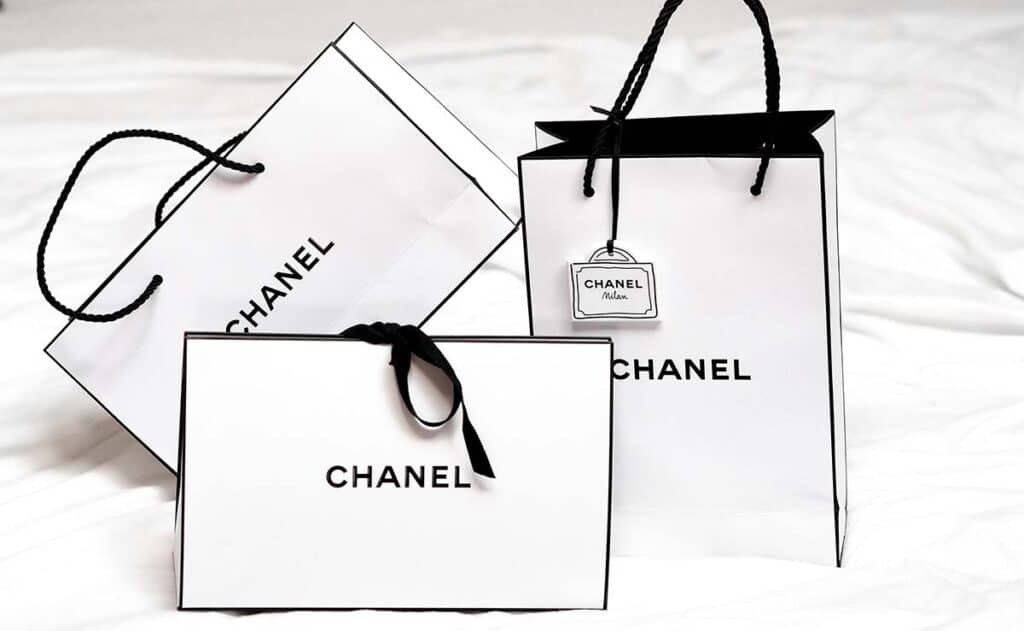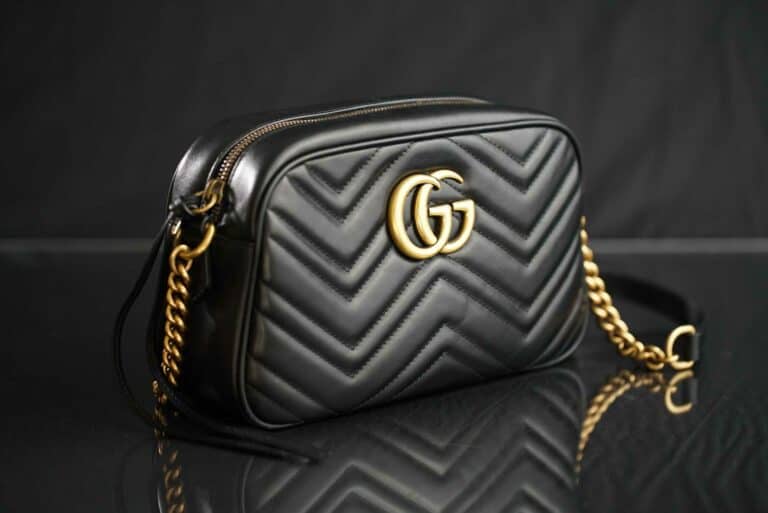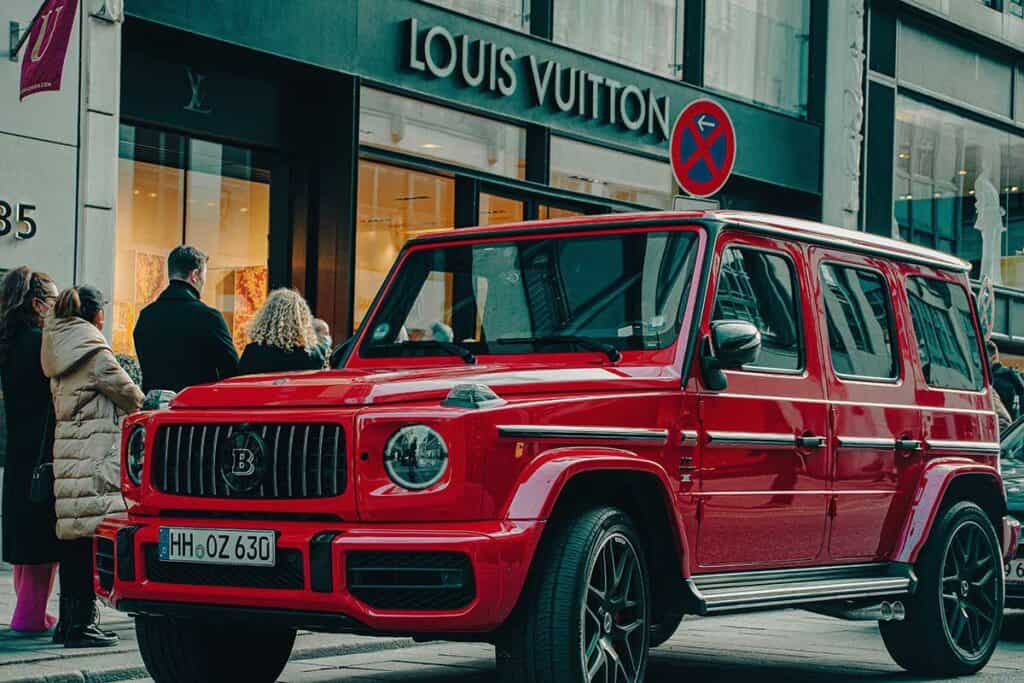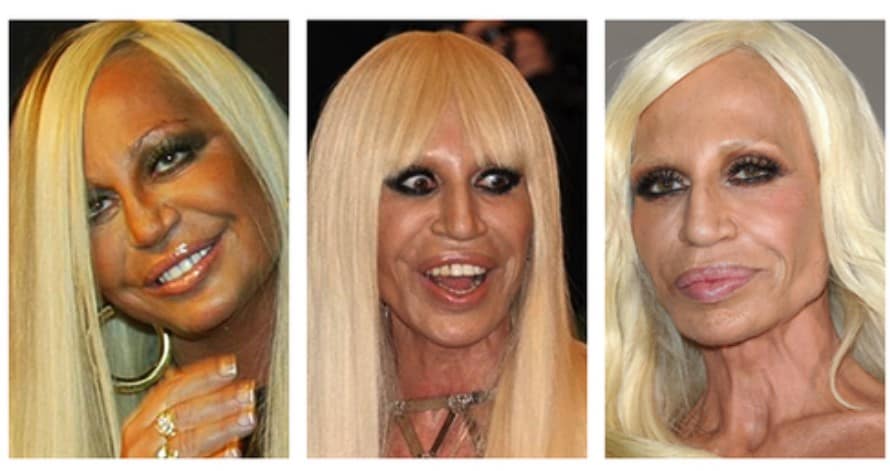When you can buy something for $100, why pay $1,000?
The high prices of luxury goods create questions about why people keep buying them. However, the answers to these questions don’t necessarily originate from the buyers only but also from the brands themselves. Luxury brands make their products appear worth it even with the irrational prices.
Meanwhile, individuals have many reasons why they choose to pay such high prices for products. By exploring these reasons, people can have a better understanding of the psychology of luxury consumption and how it impacts consumer behavior.
What Are Luxury Goods?
Products can be considered a luxury when they meet specific standards such as quality, price, and target market. Luxury goods are closely attached to their brands. In fact, the brands are one of the biggest reasons these goods can be categorized as luxury.
Some examples of luxury goods are designer clothing, high-end vehicles, high-end electronics, and fine jewelry and watches.

The Allure of Status: How Luxury Consumption Satisfies Our Social Needs
People tend to adjust their appearance to the situation they’re in. If you’re going to a local grocery store, chances are you won’t see anyone wearing a ball gown or a tuxedo while the others are wearing hoodies and sweatpants.
This applies to the opposite. You wouldn’t want to have fine dining in a high-end restaurant wearing a t-shirt and jeans. No one might be against it, but you’ll look out of place. When you don’t think you fit in a situation, you might feel self-conscious.
Luxury goods are tangible proof that someone is wealthy or successful. Historically, luxury goods were exclusively designed for the elites. As time passed, they became more accessible to the public. Subsequently, the chase for a high social status increased.
Why do people want to look rich in the first place? The answer is not simply because they want to climb the social ladder, although this is partly true. It’s rather due to the need for trust and respect.
One of the reasons people wear luxury goods in public is to fit in. Studies have shown that people trust you and would likely give their time to you more when you can show your social status.
Take this, for example. Imagine you’re a client hiring a contractor for a $100,000 project. If this contractor meets you in person looking like he’s not from high social status, you would think, “How can I be sure this person wouldn’t take my money?”
On the other hand, if your contractor wears a shirt that shows a logo of a luxury brand, you may think that this person has enough money and won’t need to steal from you. You would feel safer, and the likelihood of you working together with him increases. It’s a win-win situation for both parties.
Previously, it was mentioned that climbing a social ladder is partly why people purchase luxury goods. Status is either ascribed or achieved, with the latter often appreciated more because it’s attained through merits.
If you have $5,000 and you keep it in your bank account, nobody will know how far you have come. However, if you purchase a wearable luxury item with that money, your success becomes visible, but you’re making a terrible financial decision.
This problem is later interconnected with how brands want you to have a particular impression of them.
How Limited Availability Drives the Desire for Luxury Goods
Let’s start this with an example again. You buy a set of trading cards. When you open it, you find out it contains a limited-edition card. There are only five of these cards in the world. Chances are, you’ll feel that you’re special.
Practically, the set has a standard price, which means that a limited-edition card is supposed to have the same value as other non-limited cards. However, since everybody else in the world desires that card, they would be willing to pay a multifold of the card’s original price for that one.
Luxury brands make sure that their buyers feel special by limiting the number of their products. In addition to that, scarcity creates anticipation, something that drives people to want more. The scarcer the product is, the more anticipation people would have.
Scarcity and anticipation work hand-in-hand to create prestige and high value. Brands utilize them by making it harder for people to attain their products. Hermès and Ferrari are the perfect examples of brands that handle scarcity well.
To buy a limited-edition Ferrari, you need to go through a rigorous process that includes a background check, buying a used car, buying a more common model, and many more.
A similar thing applies when you want to buy a Hermès Birkin. You can’t just go to the store and ask for one. Hermès requires you to build your credits by purchasing other cheaper items first until it can offer you a Birkin. You also can’t even choose the size or color you want.
Many criticize this kind of practice as being a scam. However, brands don’t care as long as buyers keep falling for them. As buyers go through those processes, their anticipation increases. What they have in mind is only how those products can make them special and how those items can help them maintain their social status.
Nevertheless, brands cannot solely rely on scarcity so that they can keep their luxury image. They need a set of other marketing strategies to raise the value of their products.
How Luxury Brands Cultivate Exclusivity and Desirability
Limiting production is one of many ways luxury brands project exclusivity and desirability to the public. Other than that, these are some strategies that luxury brands often use to maintain their exclusive brand image.
1. Quality Craftmanship
Most craftsmen that make products of luxury brands have to undergo years of apprenticeship before being able to produce something for the brand. Furthermore, a single product can take days, weeks, or even months to finish. These craftsmen need to make sure that every detail has no flaws.
Luxury brands claim to use the finest materials for their products. Not only are these materials exclusive, but they’re also rare. Sometimes, brands use this excuse to explain why their products are limited. When the materials are scarce end exclusive, it should guarantee the customers the quality of the products.
The meticulous craftsmanship and the use of only the best materials make luxury brands notable for their products’ quality. They make sure each item is unique and impossible to copy.
2. Emphasizing Brand History
Luxury brands can also increase their values by involving brand history and reputation in their marketing. By using a storytelling approach, a brand can build emotional and personal connections with its customers. This method also helps the customers differentiate the brand from its competitors.
Goyard, a French luxury fashion brand fountain in 1853, has successfully used this practice. Starting and remaining as a family business, it keeps focusing on quality rather than quantity. Moreover, it is still committed to traditional craftsmanship even after more than a century since its establishment.
A rich history and commitment make a brand easily resonate with customers. It increases the reputation and brand trust, resulting in high exclusivity.
3. Association with Elite Individuals
The brand ambassadors of luxury brands always come from the elites, including award-winning artists, supermodels, and highly influential people. These partnerships help to associate the brand with luxury and exclusivity. They also help to create buzz around new product releases.
This strategy helps customers resonate with the brand. By having a super famous person promoting a product, customers will feel that they’re at the same level as that person after they own it.
4. Limited Distributions
Not only do luxury brands limit their products, but they also limit the number of their retail stores. The limited distribution reinforces the brand’s exclusivity and creates a sense of uniqueness around its items.
How Luxury Consumption Can Trigger Positive Emotions and Boost Well-Being
Despite its controversies, high-end brands’ products can positively affect customers emotionally. Given that they work hard to achieve it, buying a luxury product can provide them with a sense of accomplishment and achievement.
However, it must be noted that this can become unhealthy if owning a luxury product becomes an obsession to prove one’s success.
As luxury goods are often associated with social status, they will give the customers a sense of social recognition and acceptance. This is also not a bad thing. The problem lies when the buyers solely rely on them to feel accepted and included.
Final Thoughts
While some people buy luxury items for their high quality, workmanship, and unique design, for others, social recognition and prestige are what drives them to do it. Furthermore, luxury consumption may bring a sense of enjoyment, relaxation, and accomplishment, all of which can improve overall well-being.
On the other hand, luxury brands and products will maintain their image as long as demands exist. By building customers’ trust, keeping the quality of their products high, and making sure there are limited products in the market, these brands will always manage to cater to their target market.















